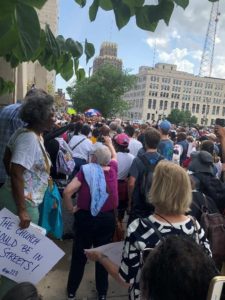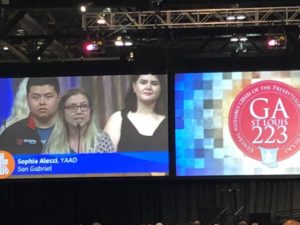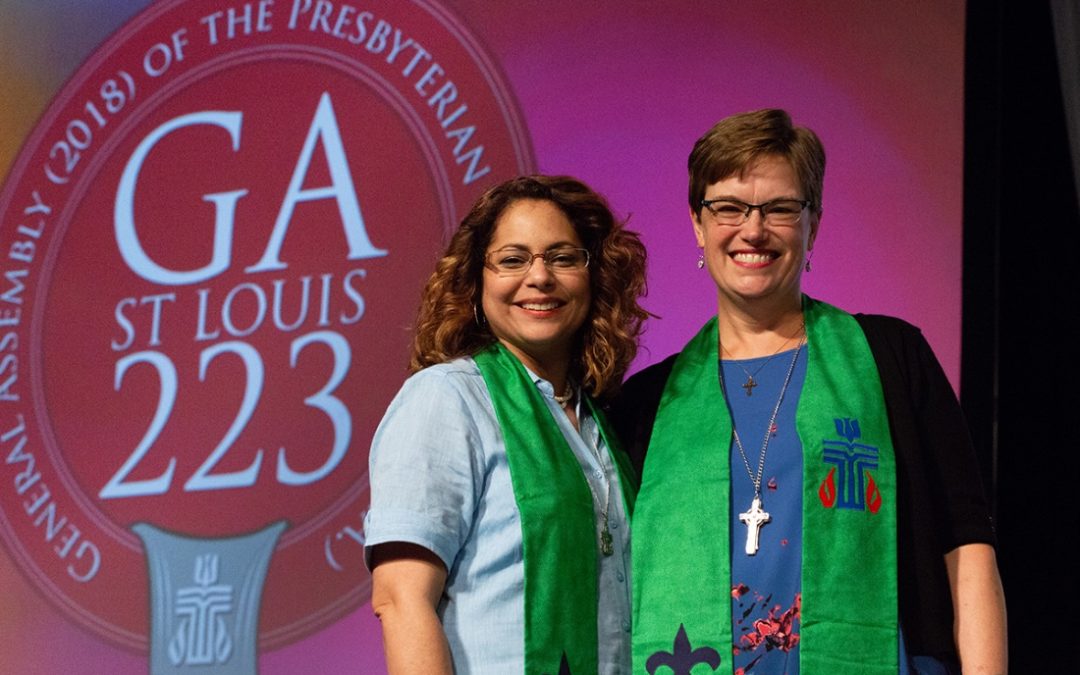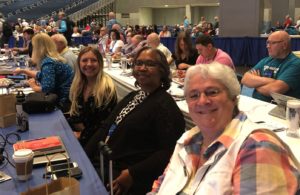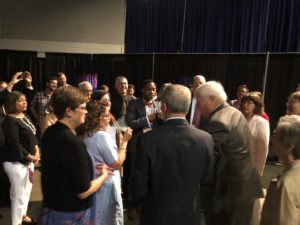Foreigners in Our Own Land
Foreigners in Our Own Land
So then you are no longer strangers and aliens, but you are citizens with the saints and also members of the household of God.
Ephesians 2:19
I did have the opportunity to visit Santa Fe, New Mexico, for a few days last week. I have often gone there, and at different times I have appreciated different aspects of the area. One place I always visit is the IAIA (Institute of American Indian Arts) Museum of Contemporary Arts. They always have new exhibits, especially showcasing young indigenous artists, and I always learn something about identity, or justice, or culture, or inspiration, or . . .
The artists often use different media, and video has become quite popular. In one room, there was a single installation by Nicholas Galanin (Tlingit/Unangax), “Wake Me from the American Dream,” 2016. This work consists of two different video clips running simultaneously on two different screens, mounted on opposite walls. On one screen, there is a scene of extreme American consumption (a large crowd tearing down a gate to get into a department store, recalling those Black Friday stampedes when people get trampled by shoppers rushing to get to the best bargains). The audio track is that of a crafts show explaining how to make a dreamcatcher, an Ojibwe tradition that has been appropriated and popularized among the dominant culture as a “marketable Native crafts item.” On the other screen shows a non-indigenous scholar, who has never visited Tlingit land, teaching the Tlingit language and demonstrating a traditional Tlingit dance to a Tlingit audience.
When I first stepped into the room, I struggled to keep track of the two screens, presenting incompatible scenes at the same time. I then focused on each screen separately, and found that each screen presented incompatibility as well, though all shared the one consistent theme, what happens when an indigenous culture is wholly taken over by the dominant culture, even to the point of the dominant culture teaching their version of the indigenous culture to the descendants of that culture.
As I sat in the room, taking in both screens, I realized that the competing media demonstrated the split identity experienced by any of us considered “bicultural”—ie, those whose traditional values are challenged by the dominant culture. We attempt to honor the values we cherish, but it’s difficult to hold to this in the face of more pervasive, louder, and more dramatic imagery from the dominant culture. And as the voices of our current society overcome the voices of our ancestors, we are subject to others from outside our community who judge us or tell us what is appropriate for our people. (I have had that happen, by the way, as well-meaning White liberals tell me that I’m not “Japanese enough” because I don’t fit what they’ve learned about Japanese culture.)
As Christians, as citizens of the kingdom of God, we are all bicultural, because the values of God’s realm are also challenged by the dominant culture, even as the dominant culture appropriates Christian culture and claims to teach us what it means to be Christian. (I experienced this phenomenon as a pastor, when working with new church members whose faith was first formed by Christian talk radio, or responding to a church member whose understanding of the PC(USA) was informed by internet searches which led him to the Presbyterian Layman.) But our bicultural Christian identity needs to be nurtured more conscientiously, because for most of us, our mother culture is that of the world.
So what are we to do? We can strive to listen for the still, small voice of God amidst the storms of dominant culture media. We can focus on nurturing community that gives a glimpse, a taste, of God’s kingdom as a hope-filled contrast to the brokenness of the world. We can invite others to join our community, while being proactive in teaching them the ways of our Lord, which are not the same as the ways of the world. And we can be strengthened by reading Scripture, the most certain way of learning about God, as well as listening for God through prayer and worship, and connecting with other citizens at the kingdom table when we take communion.
It helps to first be aware that the world’s culture, and American culture, is not necessarily of God. So let us not simply follow whatever we are told, especially from the loudest voices, and those who claim to know the mind of God. And let us be strong enough in the faith and Word of God, that we may assess what is around us in light of the standards of the kingdom of God, that we may not only be citizens in good standing but ambassadors of Christ, helping others to know the grace of Jesus Christ, whose love can overcome even the fear and hatred that infects the world around us.
May we rejoice and give thanks for the community of God’s realm, and live out of the laws of that kingdom, the laws of justice and peace, of grace and gratitude, of faithful and joyous obedience to the Lord of Love.
Blessings,
Wendy


